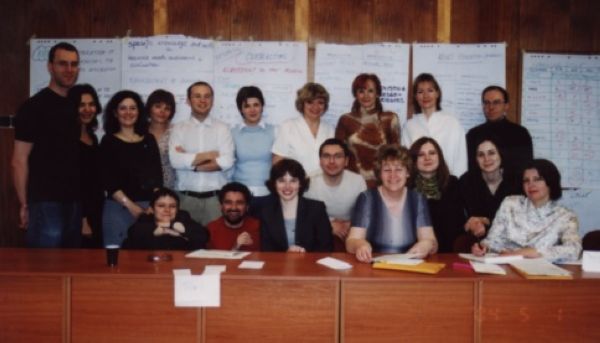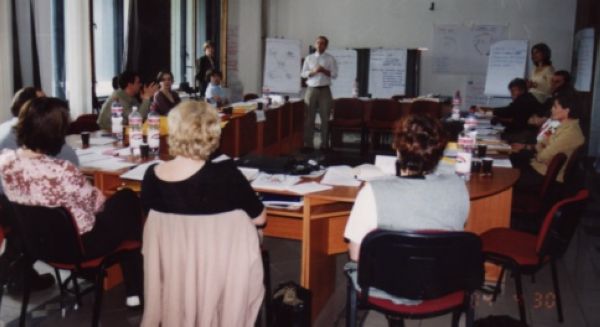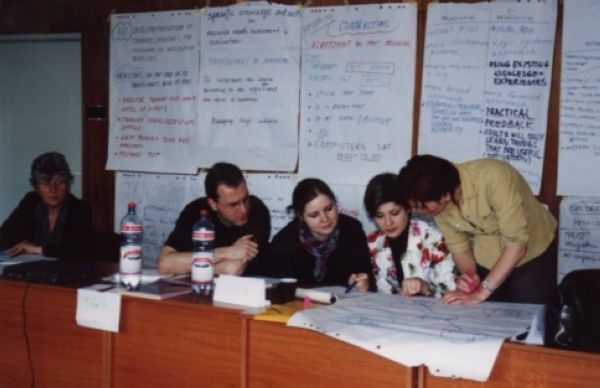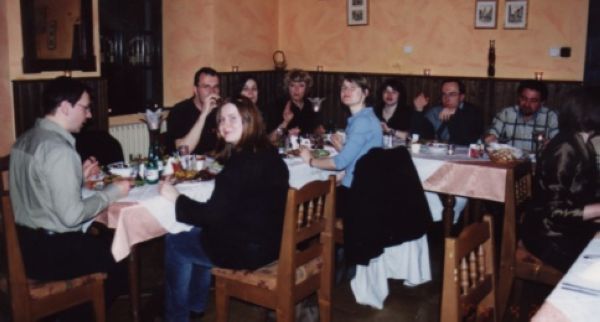“Institution Building for EU Membership”
Training of trainers
Bratislava, Slovak Republic, April 26-May 1, 2004
written by Ieva Lazareviciute, Project Expert
Among many other activities NISPAcee has been developing a new service to its member institutions – assistance in building advisory capacities for public sector development. The first stage of this initiative focused on bridging academia and applied policy worlds and targeted those members of academia who were interested in pursuing a more active role as advisors to their governments. As a result of this first stage a manual “How to be a policy advisor” has been published in English and Russian and supporting training programmes have been developed and are now available to all those partners that are interested in this service.
The evaluation of the first training course and the manual has revealed that the need for further advisory capacity building in specific fields continues to be important to majority of NISPAcee members. Therefore a new option for advisors had been included among NISPAcee services. Since July 2003 NISPAcee with the support of UNDP and Matra has been working on the development of a new advisory training course and manual for advisors on institution building in preparation for the EU membership.
A team led by project experts Toni Niculescu (Romania) and Ieva Lazareviciute (Lithuania) has developed materials for the manual for advisors. This work was supported by various partners and international experts from EIPA, UNDP, OECD SIGMA, and the World Bank.
Following earlier experience a supporting training programme focused on the transfer of the knowledge summarised in the manual and the development of skills needed to apply this knowledge in practice has been designed. For the delivery of this programme an international team of trainers has been selected. The members of the team represent Lithuania, Slovakia, Poland, Estonia, Czech Republic and Bulgaria. In addition to these new member states and accession countries Ukrainian partners had also been invited to participate since the aim of institution building process is not limited to EU membership, rather it is a process that leads to more effective and efficient governance for citizens – something that is common to all states.
The team of 13 trainers participated in a training of trainers’ programme that took place in Bratislava on April 26-May 1, 2004. The team did not only study but also celebrated the entry of the new members to the EU. The time spent together and joint effort to develop an interesting and useful course for policy advisors has cemented the group and created a platform of support for the first training team that delivered a pilot training for advisors on institution building in Albena, Bulgaria on June 23-26, 2004.
Participants
Ms. Elena Hazarbassanova, Bulgaria



